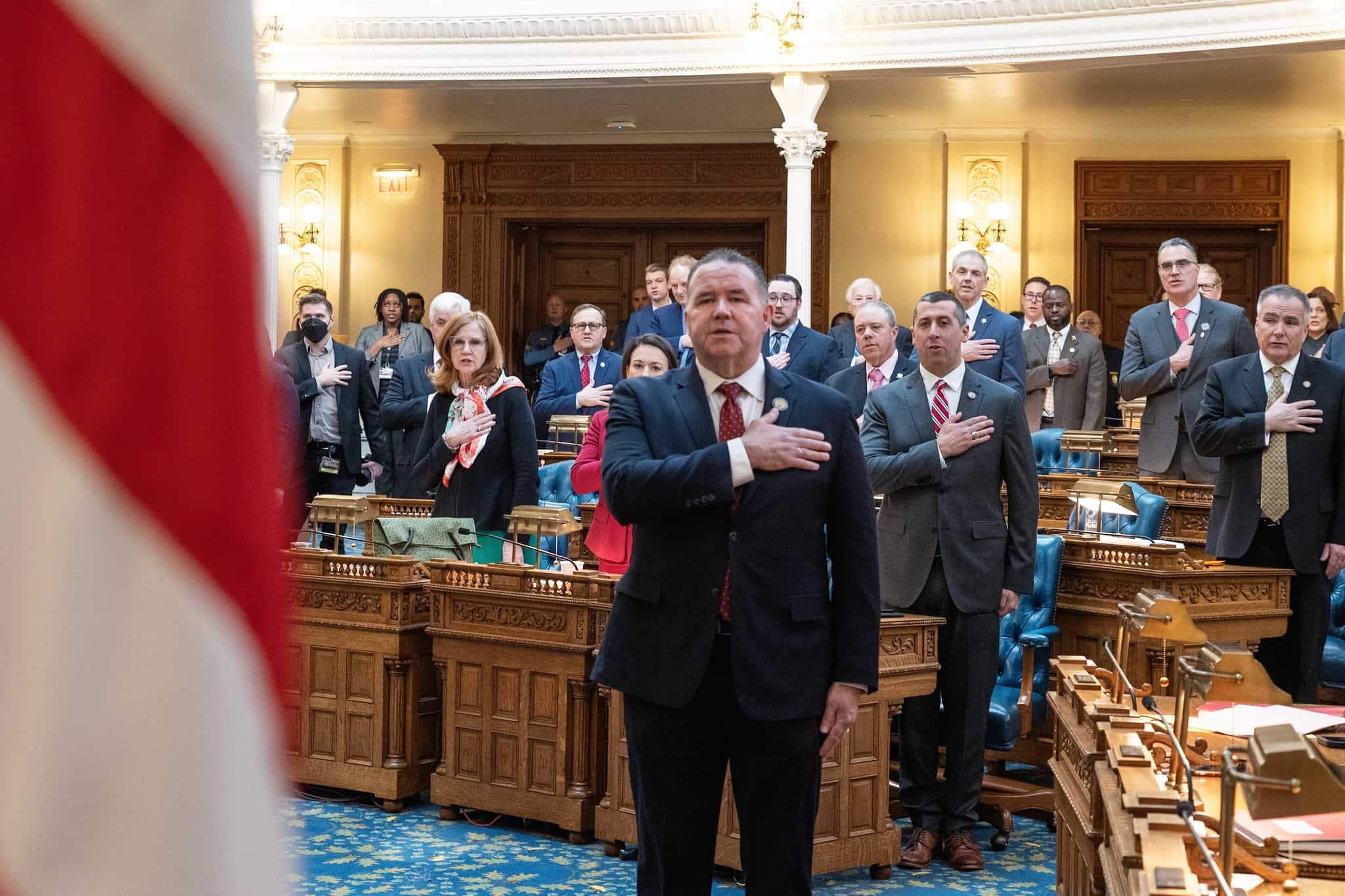By Assemblyman Alex Sauickie
In the past two weeks, I’ve written here about budget resolutions I submitted to the Assembly Budget Committee to fund improved services for veterans and state support for our schools. Again, a budget resolution is a document requesting specific changes to the governor’s proposed budget.
Because they’re meant to revise state spending priorities for the new budget year, I likened them to New Year’s resolutions, only they’re for you, not me.
This week, in part 3 of this series, I’ll review how I used the budget resolution system to promote agriculture and the preservation of agricultural land and open space.
Let’s begin with large warehouses and their impact on communities, and our efforts to preserve as much land as possible. The convenience and competition that comes from online shopping has made it a plus for both sellers and consumers to have more local storage for efficient shipping. Also, towns have an incentive to get “clean ratables” – development that brings in big property tax dollars without costing the towns much in services provided – and warehouses fit the bill.
While warehouses are good for consumers and property tax-paying households, they’re often not so good for drivers encountering more local truck traffic, residents who want to keep more open space, and people who just find them to be an eyesore. My focus has been to give towns more tools and support to make the decisions they believe are right for their communities.
Therefore, one of my budget resolutions would send $50 million to the state Department of Agriculture to help preserve farmland and open space that may be developed with a warehouse or high-density project. The money could be used for properties in the process of being sold for those purposes, or already sold but not yet developed.
The property would have to have regional significance and affect the quality of life of local residents. Nearness to historic districts, the capacity of area roads, and relation to farmland or open space would be factors in deciding whether the property qualifies for the program.
Because the program would likely reduce carbon emissions from heavy construction equipment and additional truck traffic, the money would be taken from income under the Regional Greenhouse Gas Initiative. The state has reported that for 2020-2022, it had almost $300 million in such income of which somewhere over a third had been committed.
To help our farmers, another resolution would direct $400,000 to bolster the Jersey Fresh program, which sponsors advertising to promote New Jersey produce. This money would begin to restore the program to past funding levels. Local farmers work hard every day to produce great, nutritious food and other products, and it’s a great benefit to them and the state as a whole to expand the marketing of Jersey Fresh products.
As I’ve noted previously, Gov. Murphy’s proposed budget includes $12 million to help build a French art museum upstate called the “Centre Pompidou × Jersey City.” Again, I have nothing against French art, but I think our state’s farmers should come first. Using about 3% of that money to help farmers seems reasonable to me.
Unfortunately, our state still has too many families suffering from hunger or food insecurity. Our farmers are helping them by working with nonprofits and other volunteers to help through “gleaning” programs. Gleaning is simply harvesting excess crops and making them available to people in need.
When kind people do good works to help those who are down on their luck, the state should help or get out of the way – or both. One of my resolutions would move another $450,000 from the French art project to support gleaning programs.
The State Agriculture Convention has led on this issue, having passed a resolution this year to increase funding to address the higher demand for gleaning, and the high fuel prices that cut into the resources of these volunteers. I thank them for that, and want to do my part to help.
Finally, an organic farming board was created by law this year to develop and run programs related to organic and regenerative farming. The latter means practices that reduce reliance on synthetic fertilizer and ensure the long-term health of the farm’s ecosystem. But since that legislation didn’t include funding for the board, I’ve submitted a resolution to move $3 million from the Jersey City French art funds to the board to benefit farming across the state.
I hope these resolutions bear fruit.
Alex Sauickie is a life-long Jackson resident who represents his home town and 13 other towns in the State Assembly. Follow him on Facebook (/AssemblymanAlex) and on Instagram (@AssemblymanAlex), or visit his website at AssemblymanAlex.com.
###
Note: This opinion piece originally appeared in The Jackson Times by Jersey Shore Online in its publication dated June 24, 2023.
 in Cream Ridge.
in Cream Ridge.